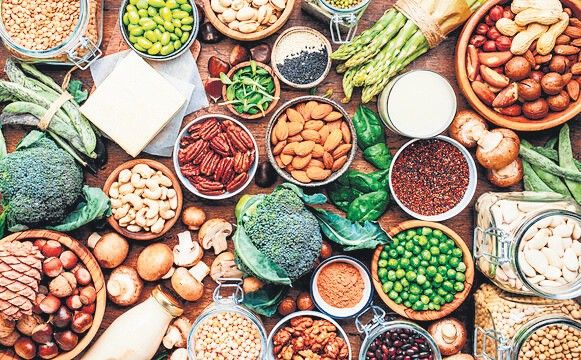
CHENNAI: As people age, their nutritional needs evolve, making a healthy diet and active lifestyle, critical to ensure longevity, vitality, and independence.
However, navigating dietary requirements for seniors can be challenging. Nearly 20-30% of elderly individuals suffer from anorexia, a significant contributor to frailty among older adults.
Eating right
Physiological changes associated with ageing heighten the risk of anorexia. Sensory impairments, hormonal changes, gastrointestinal issues, and declining oral health, all contribute to reduced food intake, affecting both the quality and quantity of nutrients consumed. Despite these challenges, simple adjustments can go a long way in building a healthier eating pattern for seniors.
Enjoy a variety of foods: Incorporate a range of foods from each food group to help reduce the risk of diseases such as high blood pressure, diabetes, and heart disease. Opt for foods with little to no added sugar, saturated fats, and sodium.
Boost protein intake: To maintain muscle mass, add seafood, dairy, fortified soy products, beans, peas, and lentils to your meals.
Include fruits and vegetables: Add sliced or chopped fruits and vegetables to meals and snacks. If chopping is challenging, consider pre-cut options.
Fortify with vitamin B12: Try foods fortified with vitamin B12, such as cereals, or consult your doctor about taking a B12 supplement.
Reduce sodium: Season foods with herbs and citrus like lemon juice instead of salt.
Stay hydrated: Drink plenty of water throughout the day to aid digestion and nutrient absorption. Avoid sugary drinks.
Meal planning tips
Planning meals doesn't have to be overwhelming. With the right information and motivation, making healthy choices can be both simple and enjoyable. Here are some tips to make meal planning easier:
Plan ahead: Meal planning removes the guesswork and ensures a variety of nutritious foods throughout the day.
Stick to a budget: Create a shopping list to help find budget-friendly foods while focusing on healthy options.
Consider preparation time: Quick meals can be made in as little as five minutes. For those who enjoy cooking, preparing a meal with friends or family can make the experience more rewarding.
your calories: Caloric needs vary by individual. Always discuss weight and fitness goals with your healthcare provider before making significant changes to your diet.
Bone health
For optimum bone health, calcium and vitamin D play crucial roles. Ageing is often characterised by the loss of bone mineral density, which can lead to osteoporotic fractures and limit mobility. Women face a higher risk of bone loss around 2-3% per year, especially after menopause due to estrogen deficiency, which reduces calcium absorption.
Calcium and vitamin D sources: Milk, paneer, and ragi agathi and drumstick leaves, soy products, oily fish like salmon and sardines, mushrooms, eggs, and liver fortified foods in some countries.
Foods to avoid for bone health
Certain dietary habits can negatively impact bone mineral density (BMD):
Smoking: Both direct and second-hand smoking weaken bones.
Excessive alcohol: Limit alcohol to 1-2 servings, 2-3 times per week.
Excessive tea/coffee: More than three cups a day can decrease calcium absorption and lower BMD.
Soft drinks and caffeine: Avoid these as they contribute to reduced BMD.
High sodium: Excess sodium paired with low calcium intake increases calcium excretion, leading to osteoporosis.
A diet rich in calcium, vitamin D, and protein is more effective for maintaining bone health than relying solely on supplements.
Healthy ageing is possible through mindful eating and lifestyle choices. By addressing unique nutritional needs and incorporating nutrient-dense, budget-friendly foods into meal plans, seniors can maintain their health, independence, and quality of life. Simple, consistent dietary changes can make a world of difference in supporting vitality and well-being.